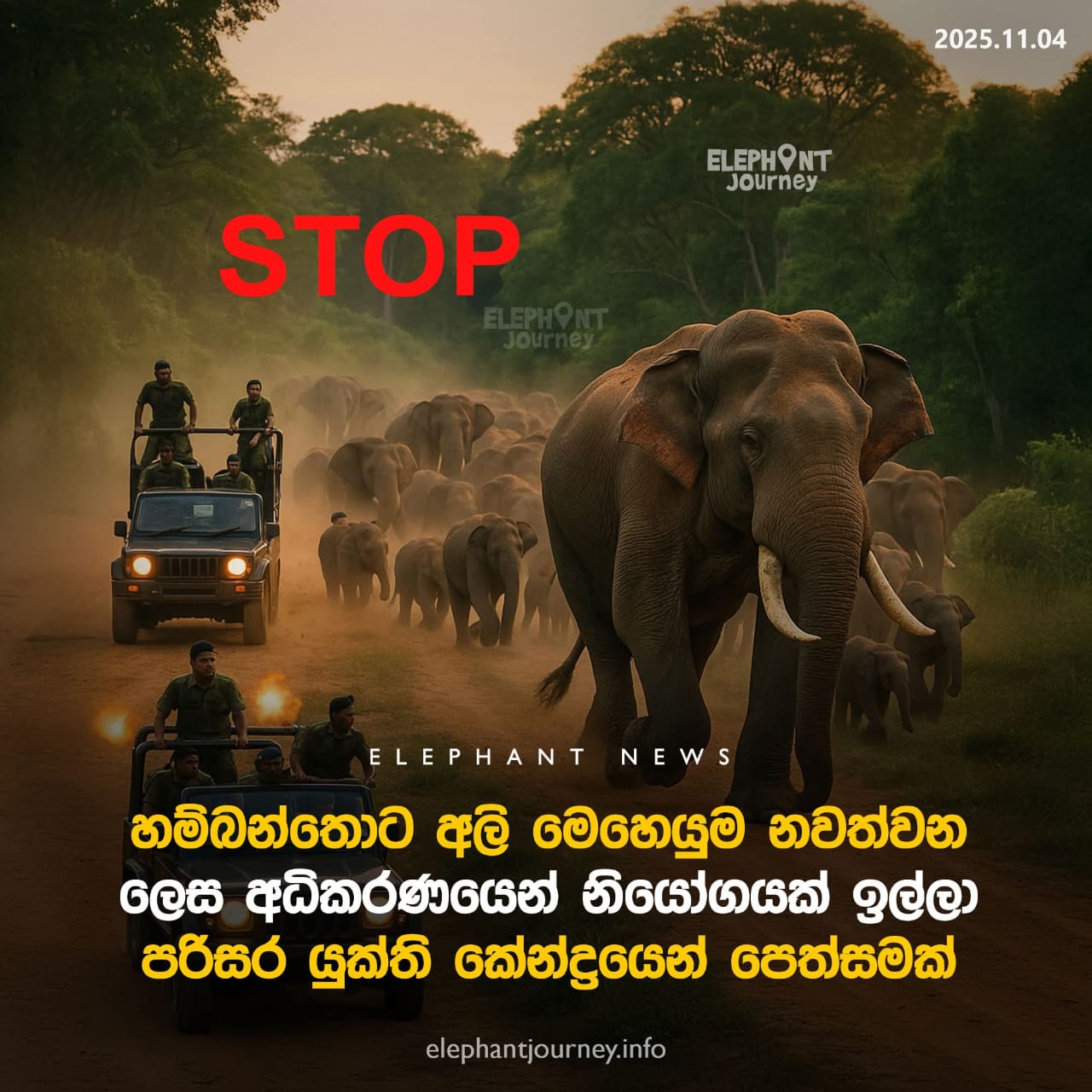
Petition Filed in Supreme Court Seeking Interim Order to Halt Elephant Relocation from Hambantota
1. The case is scheduled to be taken up before the Honourable Supreme Court on November 20, 2025, concerning the continuous failure of responsible authorities to take lawful and effective measures. The petition also includes matters related to the establishment of the Walasmulla Elephant Management Reserve, which forms part of this fundamental rights petition.
2. Reliable sources and media reports have revealed that the current government, through the Ministry of Environment and the Department of Wildlife Conservation, has planned a large-scale elephant relocation operation starting from Hambantota. It is said that this operation aims to move wild elephants from human settlements to designated wildlife reserves.
3. It has been brought to attention that the government, through the relevant ministries and departments, has initiated preparations for this mass elephant translocation from Hambantota to other areas, intending to transfer elephants into designated reserves away from populated regions.
4. The proposed relocation poses an immediate and severe threat to the lives, safety, and well-being of Sri Lanka’s wild elephant population, as well as to the ecological stability of the affected regions.
5. The planned elephant translocation represents a grave and imminent threat to the life, security, and welfare of the elephant population in Sri Lanka and to the integrity of the nation’s vital ecosystems.
6. It is further stated that such elephant relocations have been scientifically and historically proven to be ineffective and inhumane, often resulting in physical injuries, psychological distress, separation of herds and calves, and ultimately death from starvation or exhaustion.
7. The National Policy for the Conservation and Management of Wild Elephants (2006)—an officially adopted policy framework of the Sri Lankan government—explicitly discourages such actions. Clause 4 states, “No large number of elephants should be removed from their established ranges,” while Strategy 2.2 emphasizes that such translocations do not provide a viable solution to human-elephant conflict.
8. It is further emphasized that the Walasmulla Elephant Management Reserve already provides adequate resources such as food, water, and movement space for existing elephants. If another 100 elephants are forcibly introduced through this proposed operation, the system will become unsustainable, leading to severe conflicts between elephants and humans.
9. Continuous illegal encroachments and land clearances within protected areas such as Yala, Udawalawe, and Wilpattu National Parks, along with repeated failures to gazette and secure 16 identified elephant corridors, have drastically reduced available habitats. This has directly forced elephants to enter farmlands and villages in search of food and water.
10. Within the Walasmulla reserve—one of the main subjects of this petition—certain administrative officers have allegedly allowed illegal land clearing, cattle grazing, and unauthorized land allocations to occur freely, disregarding ongoing judicial oversight by the Honourable Court.
11. The petitioners argue that if the proposed elephant relocation is carried out while this case is being heard, it would undermine the authority and purpose of the Supreme Court’s judicial process. It would also violate Articles 12(1) and 14(1)(g) of the Constitution by infringing on the right to equality and the right to engage in lawful environmental advocacy, causing irreversible environmental damage.
12. The petition further highlights that such actions would breach Sri Lanka’s international obligations under the Convention on Biological Diversity (CBD) and violate recommendations of the IUCN Asian Elephant Specialist Group, which recognizes the Sri Lankan elephant (Elephas maximus maximus) as a threatened subspecies facing extinction risk.
13. If the proposed elephant relocation proceeds unchecked, it would inflict irreversible harm on Sri Lanka’s wild elephant population and the ecosystems they sustain. Therefore, urgent intervention by the Honourable Supreme Court is sought to prevent this operation and safeguard the subject matter of the petition.
The petitioners also stress that no such action should be taken without proper scientific research and long-term conservation planning.
For further information, please contact Senior Attorney Ravindranath Dabare at 0777307850.
Environmental Justice Centre
Loading comments...